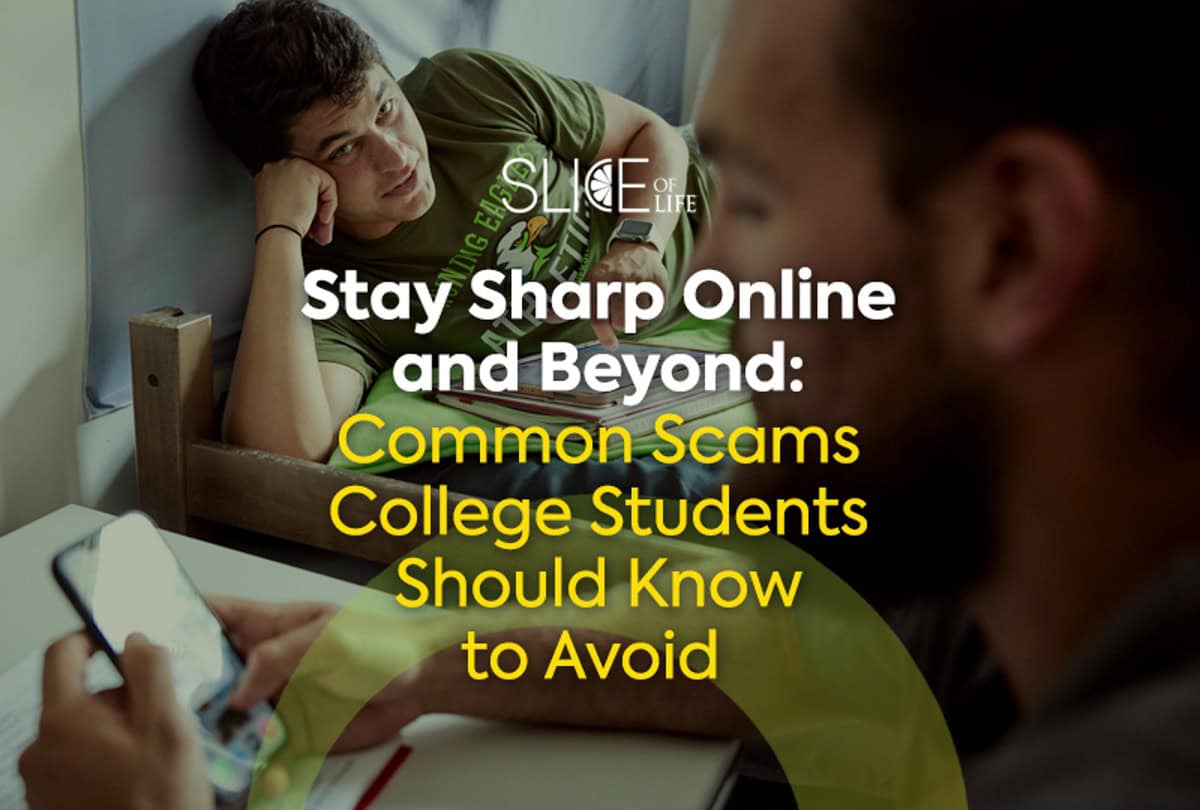College can be a confusing and stressful period in a person’s life. Unfortunately, unscrupulous people often take advantage of college students through increasingly conniving means, so it’s best to have an idea of what you are potentially up against. The Federal Trade Commission’s (FTC) 2021 Consumer Loss Report indicates that though popular belief implies that the elderly are more susceptible to scam artists, in truth, Gen Xers, Millennials and Gen Z young adults (ages 18-59) were 34% more likely than adults ages 60 and over to report losing money to fraud.
Of course, scams can take many forms – more than can be discussed here – but let’s navigate some of the most common and relevant scam types that target college students and young people.
Common Scam Types
(Adapted from idwatchdog’s article “Back to Campus: 9 Scams for College Students to be Aware of as They Head Back to School”.)
Scholarship and Financial Aid
You know the adage that if it sounds too good to be true, it probably is? That is a good rule of thumb for most scams, but it rings especially true for educationally-based fraud. Be wary if you get a call claiming that you won scholarship money, especially if you cannot recall having applied for it. The National Credit Union Administration warns against:
- Scamming phone calls to award scholarships that do not exist.
- Fake scholarship websites intended to collect email addresses or other personal information.
- Sketchy financial aid services that charge high fees for access to scholarships that students and parents could already apply to for free.
For safe scholarship application, visit the Federal Student Aid website provided by the Office of the U.S. Department of Education for free resources. For Life University (Life U)- specific scholarship funds information, please visit Life U’s Financial Aid site. Life U offers many opportunities for students to gain access to valuable scholarships.
Employment
A tempting job opening might actually be just a fishing expedition to net any information or funds they can from innocent job seekers. Personal safety can even be an issue in some cases. Red flags to look out for include:
- Offers that seem too great to be real, pledging amazing pay for little work, for example.
- Asking for money from you or personal information that is not standard.
- A strange looking email address or company website.
- A request to interview in an unusual or unsafe locale.
Imposter Scams
A scammer may pretend to be someone a student knows or a school official or other authority. They may try to authenticate this by making it appear like the call originated from a recognized number. They commonly use fear tactics, such as claiming a student owes significant money for tuition and must pay up now or be dropped from classes.
Hang up immediately when you get a call like this. Then, contact the organization that the caller claimed to be with, such as your university’s Financial Aid office.
Student Loan Debt Relief
Paying off student loans is a laborious and dizzying process, so naturally scammers use it as a means of opportunity. Scammers might say they are going to help pay down student loan debt and lower monthly payments, while in fact they divert payments into their own pockets and, in some cases, limit victim’s contact with legitimate federal loan services. Visit StudentAid.gov/repay if you have federal student loans to consolidate. Private loans can be negotiated directly with your loan servicer.
Credit Card Claims
Some credit card solicitation can actually be fraudulent identify theft. Apply for a card yourself after finding the best terms for you, instead of replying to a solicitation.
Wi-Fi Fishing
There is a reason why there are often warnings when signing into a public Wi-Fi system. If using public Wi-Fi, don’t log on to banking or other sensitive sites. If possible, avoid visiting sites on public Wi-Fi that require password login.
Social Media Snafus
Not everyone is who they say to be online. Only add friends on social media that you actually know, limit the personal or identifying information you post online, and be careful which pages you follow.
One tip to remember is never share online that you are currently on vacation or away from home and wait to share vacation photos until you have already returned. Criminals often look online to see who is away from home before attempting a robbery.
Blackmail
In the age of smartphones, people are often photographed, recorded and exploited without their consent. Be very mindful when in public and when taking, recording or sending photos or videos not intended for the public eye.
Romance Scams
(Adapted from LinkedIn’s article “Shift Happens!® When college students avoid romance dating scams”)
When prepping for a first date, you want to be thinking of sparkly conversation points and fun date spots, not scams. Yet in the digital dating age, students must be aware of how their heart can be used to get at their wallet … and worse.
A Better Business Bureau (BBB) study conducted in 2021 revealed that individuals aged 18-24 accounted for 15% of reported romance scam victims. So be careful who you trust and what information and funds you share.
If you believe you have been a victim of fraud, identify theft or unfair business practices, report it to the Federal Trade Commission site.
Slice of LIFE is an invitation to and extension of everything happening at Life University. Whether you are a current student, a potential freshman or a proud alum, Slice of LIFE can help keep you connected to your academic community. Know of a compelling Life U story to be shared, such as a riveting project, innovative group or something similar? Let us know by emailing Marketing@life.edu.


Social Media